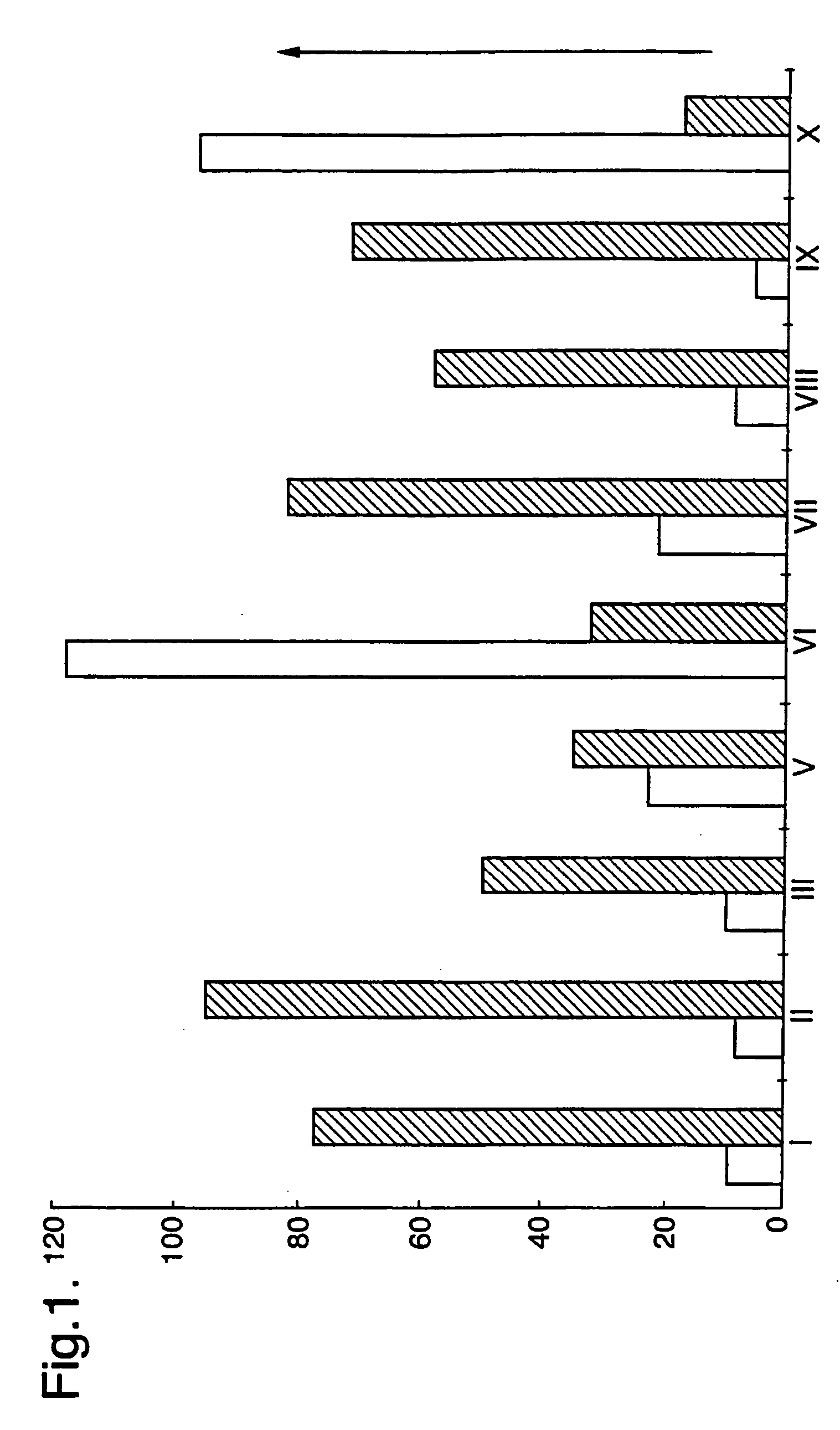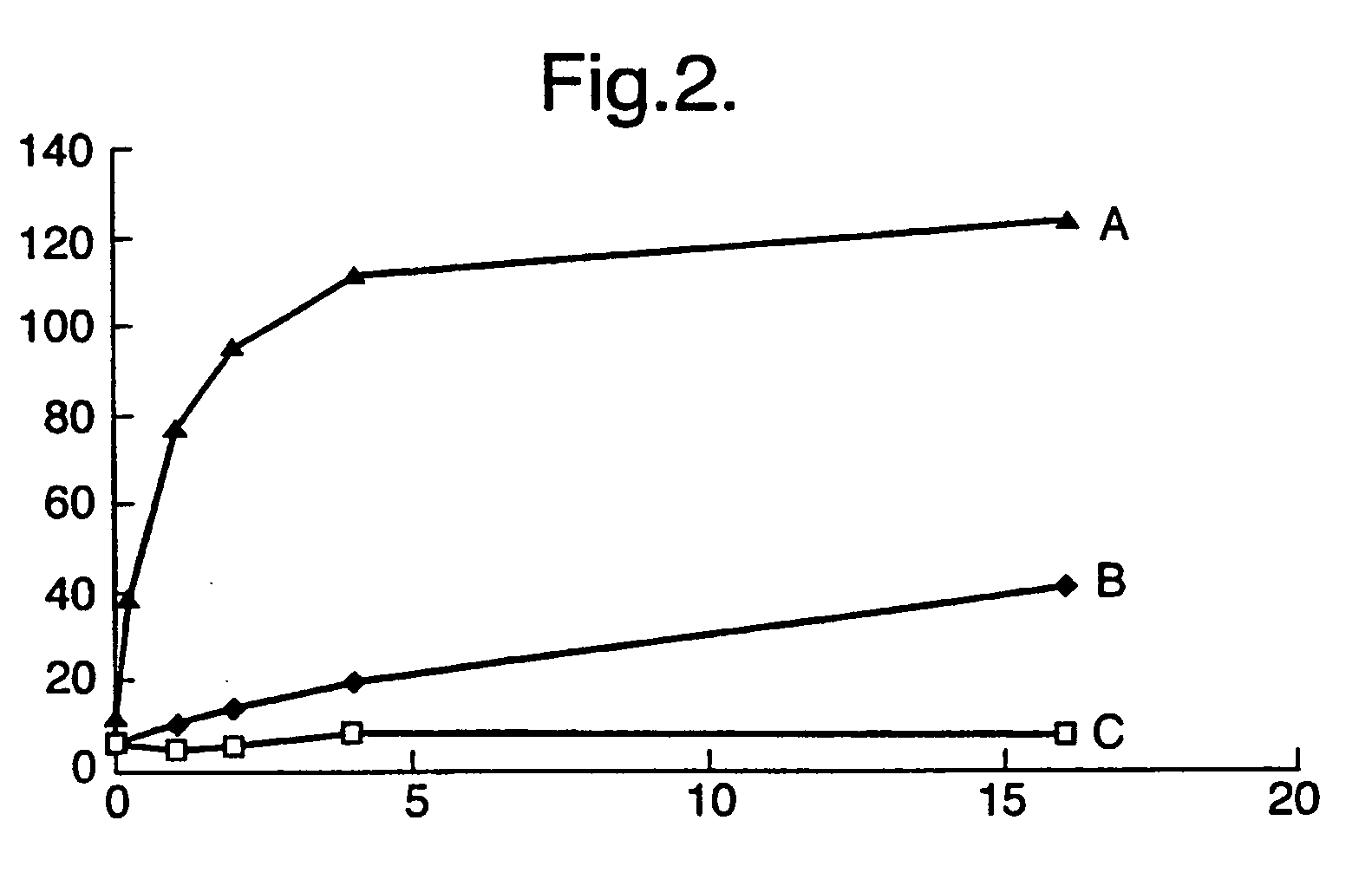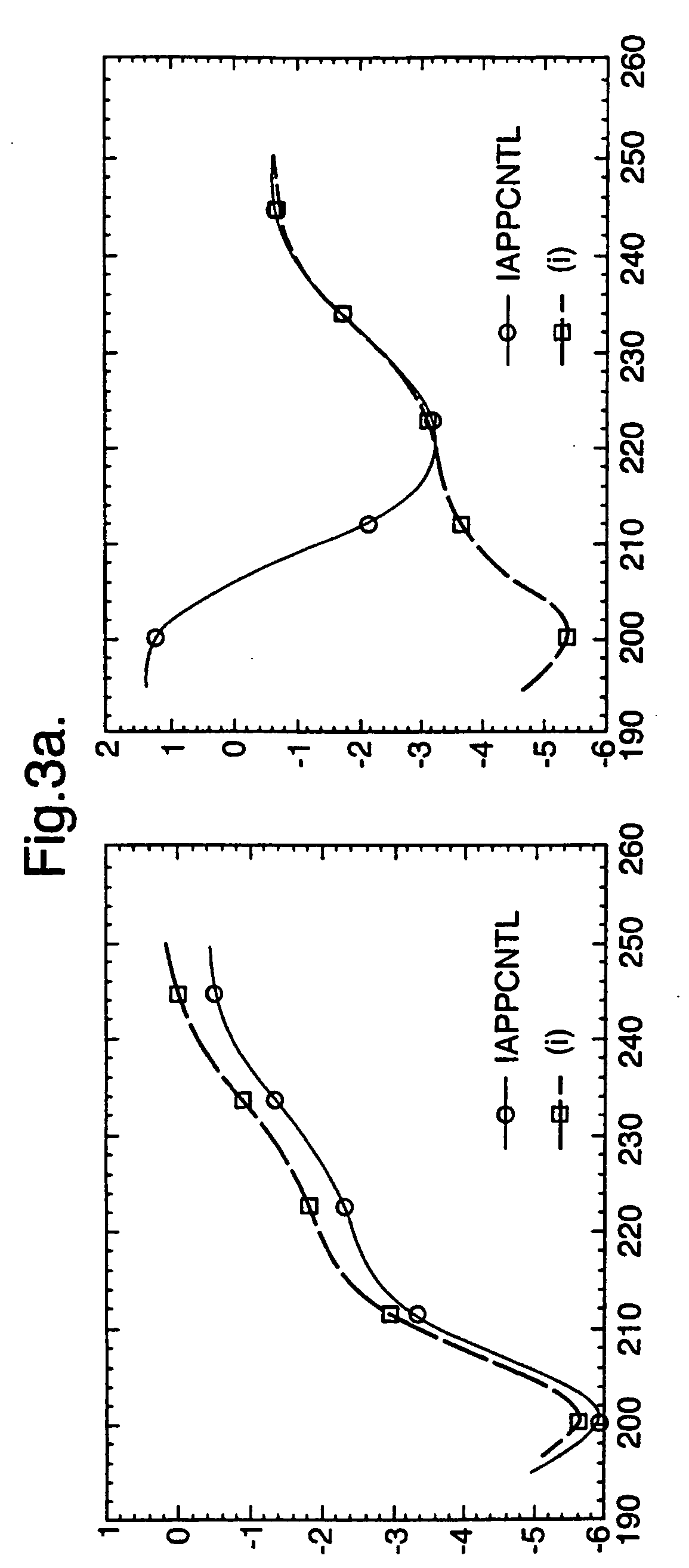Compounds for inhibiting diseases and preparing cells for transplantation
a technology of amyloidosis and compounds, which is applied in the field of compounds for inhibiting amyloid deposits in vivo, cells for transplantation, etc., can solve the problems of inability to significantly prevent, clear or reduce amyloid deposits in situ, and no known therapy or treatment which significantly prevents, inhibits or disrupts amyloid deposits, inhibits amyloidosis, inhibits amyloidosis, and inhibits amyloidosis.
- Summary
- Abstract
- Description
- Claims
- Application Information
AI Technical Summary
Benefits of technology
Problems solved by technology
Method used
Image
Examples
example 1
Determination of the Rate of Amyloid Fibril Formation by Thioflavine T Spectroscopy
[0124] Thioflavine T (ThT) binds to amyloid proteins in β-sheet formation, exhibiting a yellow fluorescence from tissue sections and fibrils in vitro. Detection of ThT fluorescence can be used as a sensitive assay for amyloid fibril formation under different conditions. This assay has been used in experiments to determine the effects of compounds of the invention on amyloid fibril formation.
Method
[0125] Human IAPP was dissolved in 40% trifluoroethanol and freeze-dried into conveniently-sized aliquots. IAPP was prepared immediately before the measurements by dissolving in 40% 1,1,1,3,3,3-hexafluoro-2-propanol (HFIP) in water to maintain the peptide in alpha helical conformation and soluble. A stock solution of ThT (2.5 mM) was prepared, 7.9 mg in 10 mL Tris-HCl pH 7.0 and filtered (0.22 μm). Solutions were kept in the dark until use. Fluorescence was examined at 440 nm excitation (slit 5 nm), and ...
example 2
[0127] Circular dichroism analysis was conducted to confirm the activity of certain therapeutic compounds in preventing or inhibiting IAPP-associated fibril formation in accordance with the present disclosure by determining the presence or absence of β-sheet conformation.
[0128] The assay is conducted as follows:
Instrument and Parameters
Instrument: JASCO J-715 Spectropolarimeter
Cell / cuvette: Hellma quartz (QS) with 1.0 mm pathlength
Wavelength interval: 250 nm-190 nm
Resolution: 0.1 nm
Bandwidth: 1.0 nm
Response time: 1 sec
Scanning speed: 20 nm / min
Number of spectra run: 5
[0129] The assay, a co-incubation procedure, examines the ability of a compound or substance to inhibit the assembly of amyloid fibrils, e.g., to test for the presence of the amyloidotic b-sheet conformation in the presence of soluble IAPP. Samples are run in the presence and absence (i.e., water alone) of buffering agent, which is done to determine if competitive effects are seen wi...
example 3
The Synthesis of a Compound of the Invention, 4-phenyl-1-(3′-sulfopropyl)-1,2,3,6-tetrahydropyridine, Sodium Salt.
[0135] To a solution of 4-phenylpyridine (15.5 g, 0.1 mol) in acetone (100 mL) was added 1,3-propane sultone (12.2 g, 0.1 mol) at room temperature. The mixture was then heated at reflux temperature overnight. The resultant suspension was cooled to room temperature. The solid was collected by filtration and washed with acetone. To a solution of the solid (31 g) in methanol (500 mL) was added sodium borohydride (10 g, 260 mmol) portionwise, and the mixture was stirred at room temperature for 2 h. Distilled water (50 mL) was added to destroy the excess of sodium borohydride. The mixture was diluted with methanol (200 mL), and neutralized with Amberlite IR-120 ion-exchange resin (H+ form, 300 g). A white precipitate was formed. The precipitate and the resin were removed by filtration and treated with distilled water (400 mL) at ˜100° C. The mixture was filtered and the res...
PUM
| Property | Measurement | Unit |
|---|---|---|
| pH | aaaaa | aaaaa |
| diameter | aaaaa | aaaaa |
| concentration | aaaaa | aaaaa |
Abstract
Description
Claims
Application Information
 Login to View More
Login to View More - R&D
- Intellectual Property
- Life Sciences
- Materials
- Tech Scout
- Unparalleled Data Quality
- Higher Quality Content
- 60% Fewer Hallucinations
Browse by: Latest US Patents, China's latest patents, Technical Efficacy Thesaurus, Application Domain, Technology Topic, Popular Technical Reports.
© 2025 PatSnap. All rights reserved.Legal|Privacy policy|Modern Slavery Act Transparency Statement|Sitemap|About US| Contact US: help@patsnap.com



